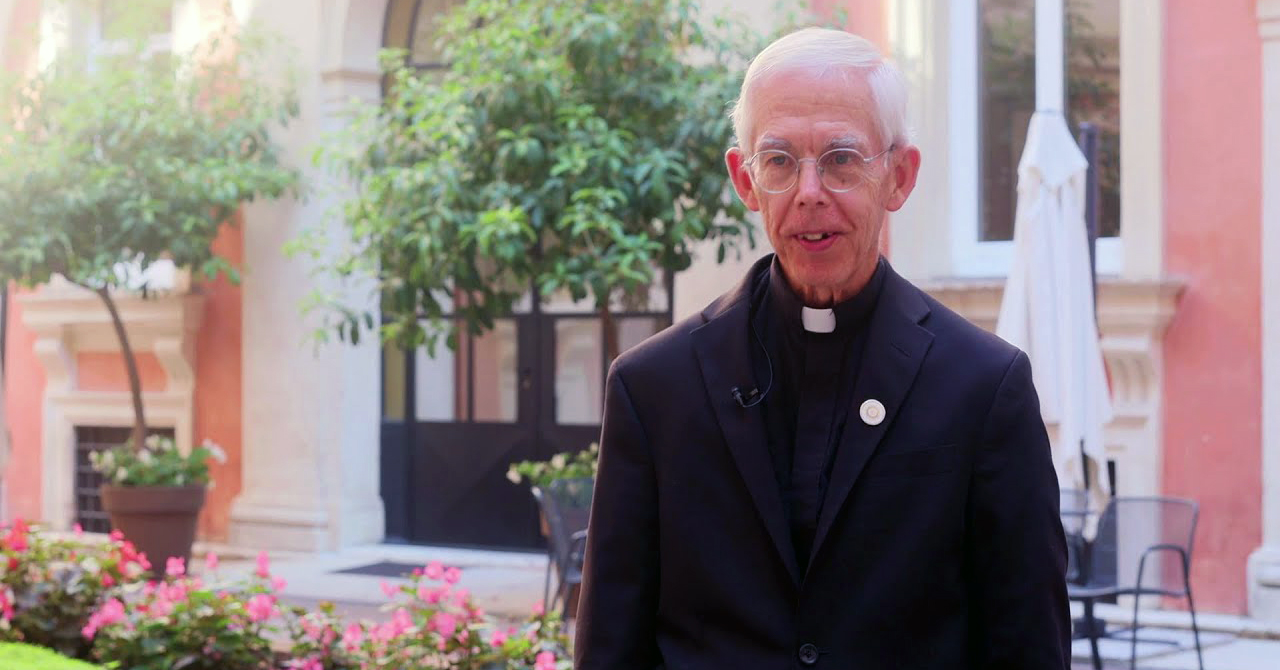
24 Jun June 2024 Reflection – Michael McFarland SJ
Yielding to the Spirit
It is sometimes said that, just as poverty is the defining vow for Franciscans, so obedience is for the Jesuits. While Jesuits, like other religious orders, are bound by all three vows of poverty, chastity and obedience, and St. Ignatius put a strong emphasis on poverty in our Constitutions, nevertheless, obedience does play a central role in our way of life, highlighted by the fact that fully professed Jesuits take a special vow to go wherever the Holy Father sends them. This tradition of responding unhesitatingly to whatever mission comes from superiors, whether it is the Provincial, the Superior General or the Pope, has been a notable part of Jesuit history from the beginning, when St. Ignatius was sending his men all over the world, often into an unknown or dangerous situation, to spread the Gospel. He even sent his closest friend and most valued confidante, St. Francis Xavier, off to India and beyond, knowing that he would never see him again. And Xavier embraced that mission with all of his extraordinary passion, energy and talent. It is that attitude that has allowed the Society of Jesus to be so agile and effective in taking on the most important and difficult missions, adapting to different cultures and environments and meeting the challenges of each new generation with creativity and openness. Of course we all fall short of the ideal in one way or another, but it is still a strong enough part of our spirituality and culture that it keeps us moving forward. Recent examples are the many efforts to put into practice the call for a “faith that does justice” decreed by our Thirty-Second General Congregation by founding Cristo Rey, Nativity, Fe y Allegria and other schools for those on the margins of society, work with refugees through the Jesuit Refugee Service, and many other programs offering solidarity and support for the poor.
This mandate of availability is lived out daily in many more ordinary ways. I experienced it first-hand early on as a novice when we were preparing for our semester-long “experiments” serving in various Jesuit apostolates. One of the options was to work with a Jesuit priest on the Passamaquoddy Indian Reservation in Northern Maine. I was strongly attracted to that because I had worked for several years with Native Americans before joining the Jesuits and loved the people and the work. So of course I was assigned to work as a nurses’ aid at Campion Center, a large residence mainly for retired Jesuits and those in need of nursing care. It turned out to be one of the most important experiences of my Jesuit life. The men I helped care for taught me so much and were a powerful inspiration. They included former scholars, teachers, missionaries, provincials, presidents and at least one future saint (Walter Ciszek). They were dealing with all kinds of physical, cognitive and psychological problems, as well as general diminishment, yet they were devoted, kind, prayerful and long-suffering. What impressed me most of all was the deep sense of camaraderie among them, especially in the way they looked out for each other. They taught me more about being a Jesuit than any lectures or books we had during our formation.
Since then I have had many very different assignments in the Jesuits, almost never to anything I would have chosen myself, yet they all worked out far better than what I would have done on my own. Evidently God, working through my superiors, knew what was best. We are always inclined to think of obedience as limiting, even punitive, but if it is approached with trust in God’s wisdom and love, it can be freeing and a powerful experience of grace. It can open up new possibilities for learning, growth and accomplishment, beyond what we could have imagined. It was in that spirit that I accepted the assignment I was just given, to go back to Campion Center, this time as its superior. It came very unexpectedly, as the current superior was called to a new position as superior of the Jesuits studying at Boston College. It is a lot of responsibility, with over seventy Jesuits, including 50 in the Health Center; but I look forward to caring for my brothers, many of whom have been my teachers, spiritual directors, superiors, colleagues, classmates and friends. It means leaving the work for the Gregorian earlier than planned; but the U.S. provincials have found a successor, who will be announced shortly, once our board has formally appointed him. He has all the qualifications needed to continue and grow the work successfully, and he is embracing this sudden and unexpected change in his ministry with admirable flexibility and trust. I am confident that he will be able to count on the generosity and kindness of our many loyal supporters, who have meant so much to me, so that the work of the Gregorian University, which is so important for the life of the Society of Jesus and the Church, will continue to flourish.
Michael C McFarland, SJ
President, Gregorian University Foundation



